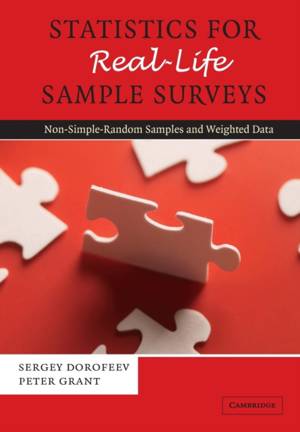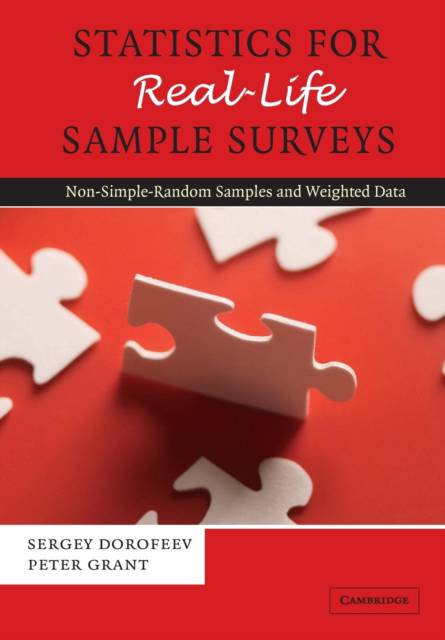
- Afhalen na 1 uur in een winkel met voorraad
- Gratis thuislevering in België vanaf € 30
- Ruim aanbod met 7 miljoen producten
- Afhalen na 1 uur in een winkel met voorraad
- Gratis thuislevering in België vanaf € 30
- Ruim aanbod met 7 miljoen producten
Zoeken
Statistics Real-Life Sample Surveys
Non-Simple-Random Samples and Weighted Data
Sergey Dorofeev, Peter Grant
Paperback | Engels
€ 87,95
+ 175 punten
Omschrijving
Samples used in social and commercial surveys, especially of the general population, are usually less random (often by design) than many people using them realise. Unless it is understood, this 'non-randomness' can compromise the conclusions drawn from the data. This book introduces the challenges posed by less-than-perfect samples, giving background knowledge and practical guidance for those who have to deal with them. It explains why samples are, and sometimes should be, non-random in the first place; how to assess the degree of non-randomness; when correction by weighting is appropriate and how to apply it; and how the statistical treatment of these samples must be adapted. Extended data examples show the techniques at work. This is a book for practising researchers. It is a reference for the methods and formulae needed to deal with commonly encountered situations and, above all, a source of realistic and implementable solutions.
Specificaties
Betrokkenen
- Auteur(s):
- Uitgeverij:
Inhoud
- Aantal bladzijden:
- 276
- Taal:
- Engels
Eigenschappen
- Productcode (EAN):
- 9780521674652
- Verschijningsdatum:
- 21/08/2006
- Uitvoering:
- Paperback
- Formaat:
- Trade paperback (VS)
- Afmetingen:
- 175 mm x 246 mm
- Gewicht:
- 557 g

Alleen bij Standaard Boekhandel
+ 175 punten op je klantenkaart van Standaard Boekhandel
Beoordelingen
We publiceren alleen reviews die voldoen aan de voorwaarden voor reviews. Bekijk onze voorwaarden voor reviews.











